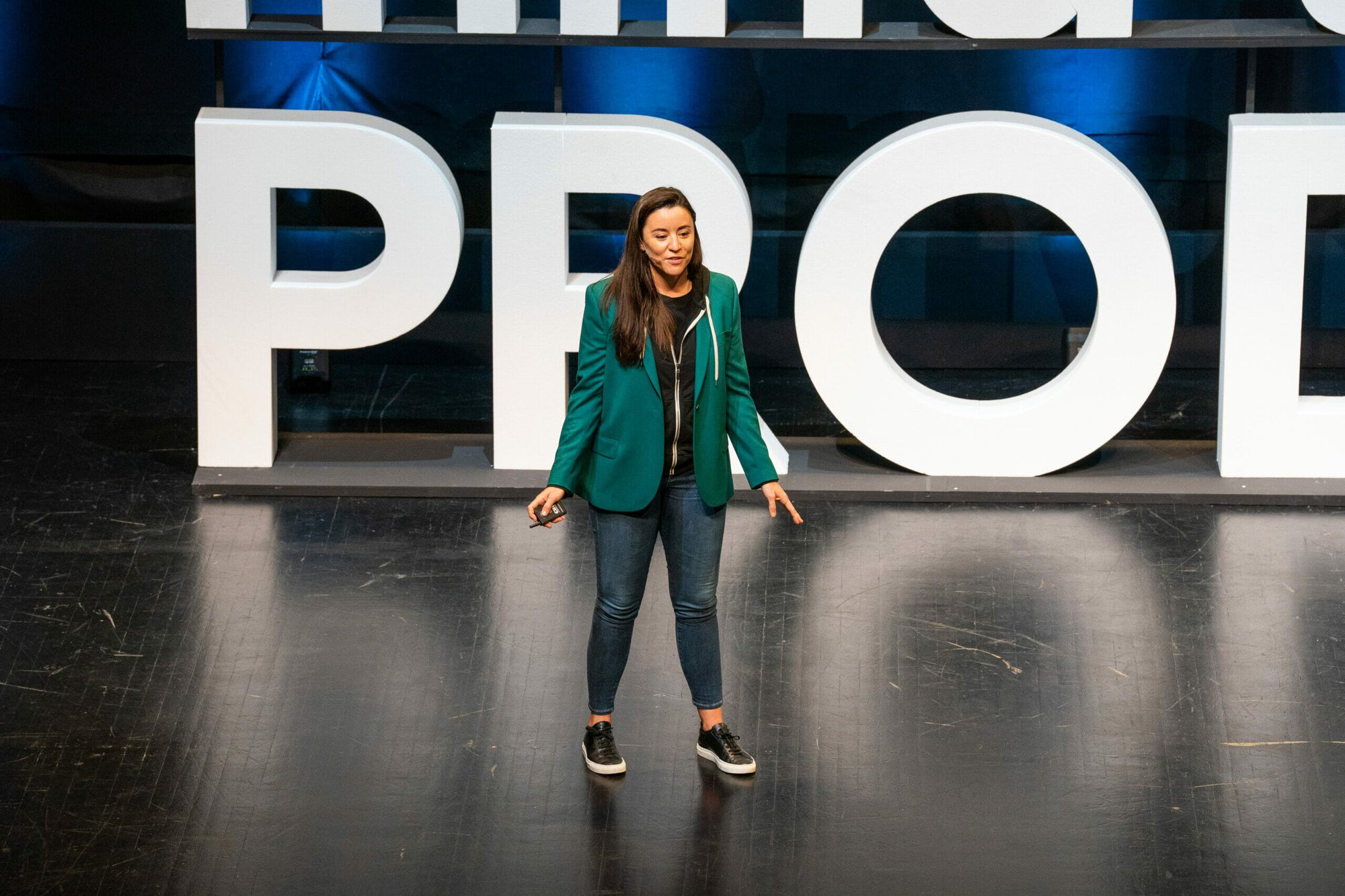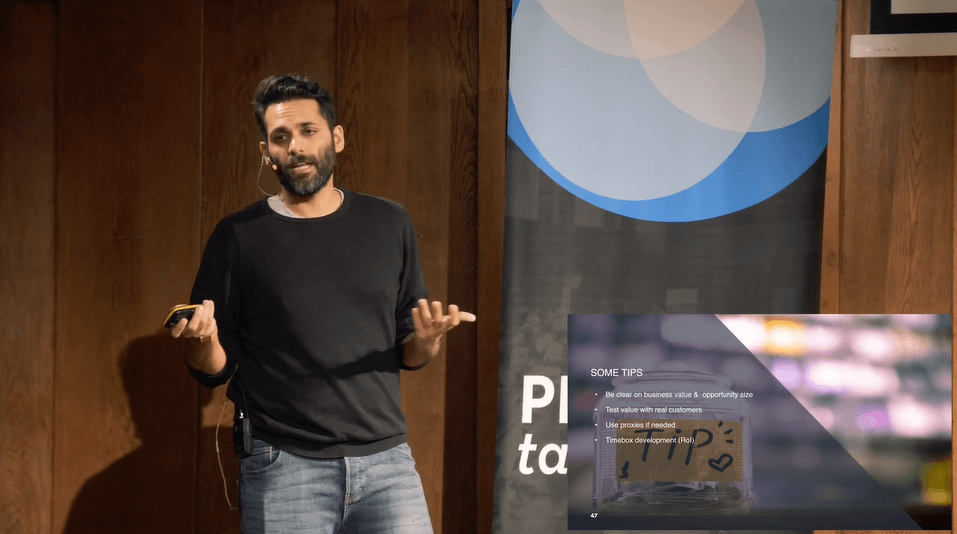On a warm summer afternoon, Christina Wodtke, lecturer and author including the bestseller Radical Focus, succinctly challenged the entire MTP Engage Hamburg audience, “You all say – ‘I got it’ – you ain’t got it!”.
Christina explains how the challenge of building an effective workplace to deliver innovative technology is hindered by fast-thinking, defensive cultures, conflict aversion and misaligned incentives. In a fast-paced 30-minute talk, you will learn why and how to improve with a pragmatic approach. Watch the video in full or read on for her key points.
Referencing Daniel Kahneman’s book Thinking Fast and Slow, Christina explains how stakeholders, team members and ourselves repeatedly ignore the facts and squeeze the points wrongly into familiar and comfortable thinking. She illustrates this by recalling sharing hard data with a colleague showing his preferred Myers-Briggs profiling tool cannot create repeatable results. Yet, despite this vital flaw, the colleague responded, “Yeah, but I like it”. She warns how this type one automated thinking can be dangerous.
Christina energetically shines a bright light on workplace behaviours that might hold your organisation back. You are one of the lucky few if you have not experienced any of the following:
- Do people get promoted for looking smart in meetings, despite not delivering?
- Are business units or departments set up to compete against each other?
- How often is action talked about, but nothing happens?
- Can you find time to do anything after answering all the emails and slack messages?
- Is thinking substituted with memory, leading to ideas killed off with the phrase “We tried that” or worse, “that’s not how we do this here”
Defensive culture, fast-thinking, and misaligned incentives block preferred working methods such as agile, lean or OKRs.
Listen to OKRs can be simple – Storm Fagan on The Product Experience.
Christina continues to explain our learning process of new methods impacts their success. If you read a book to learn how to swim, would you jump straight into the pool's deep end? Probably not. Learning from facts, such as process definition in a book, is known as declarative learning. We need procedural and declarative knowledge. Procedural learning happens when you do the task.
Relying on declarative knowledge creates misunderstandings and misinterpretations of the topic. So many organisations make a mess of OKRs. The why and how are frequently far from the original idea. Christina uses one word to pinpoint this problem—drift. For example as knowledge of OKRs travels between organisations, the promise and process “drift” from the original idea. The result is similar to the child’s telephone game. The final version is not at all what the original was.
In this entertaining and enlightening talk, Christina shares how we can improve the situation. Some top tips you can act on today include:
- First, put more focus on the action and doing.
- Use formal retrospectives.
- Be comfortable with not knowing everything in public.
- Practice giving feedback.
- Introduce temporal landmarks such as quarterly reviews.
- Finally, start playing a co-op game, even if that means ignoring the rules!
As I walked out of the industrial-style auditorium in Hamburg, I personally committed to two takeaways from Christina’s talk:
- Share everything you learn.
- Be vulnerable.
Writing this blog post is a good start. As someone with dyslexia, this blog post feels like I am already doing both! I hope you watch and enjoy Christina’s talk as much as I did.
There’s more where that came from! Access more insights from our past events
- What we learned at #mtpEngage Hamburg 2022
- Why does my product suck? by Jen Dante
- Robotics and society by Cynthia Yeung







